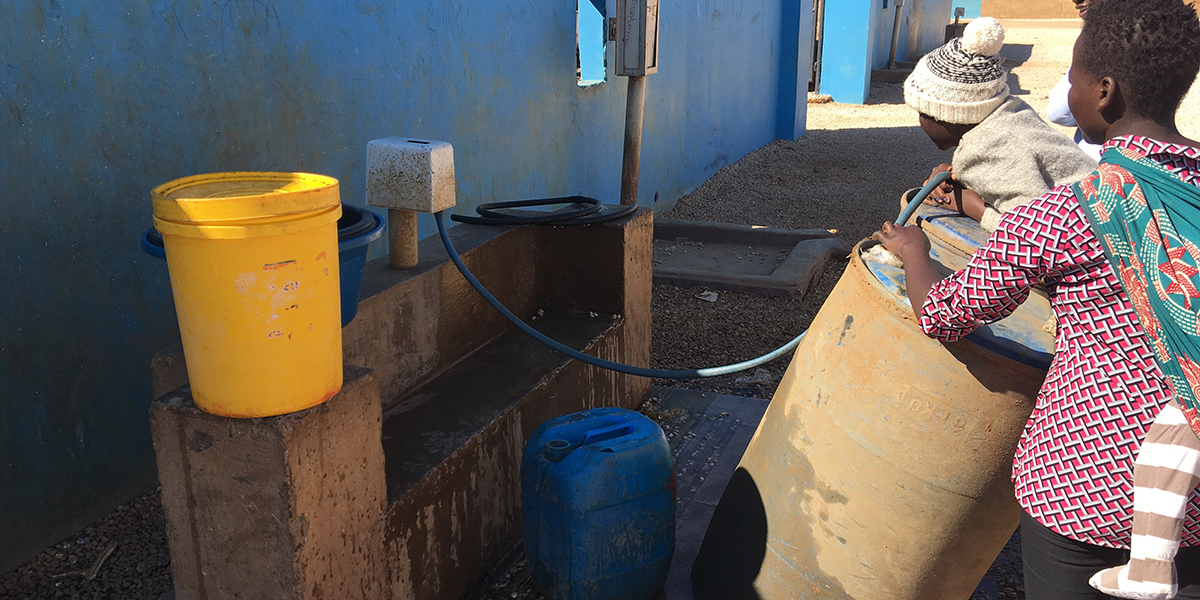Program Overview
MCC’s $355 million Zambia Compact (2013–2018) supported private sector engagement in the water supply sector through the $6 million Innovation Grant Program. As a program grantee, MECB implemented the Smart Safe Water Supply Scheme Scaling-Up project, which aimed to save women’s time and reduce incidence of waterborne diseases for the target population by providing a reliable source of high-quality water.
Evaluator Description
MCC commissioned the American Institutes for Research to conduct an independent performance evaluation of MECB’s Smart Safe Water Supply Scheme Scaling-Up project. Full report results and learning: https://data.mcc.gov/evaluations/index.php/catalog/236.
Key Findings
Water Access in Jack Compound
- MECB built 30 new communal kiosks and 1,182 direct yard and household connections in Jack Compound, a peri-urban community in Lusaka.
- Jack Compound residents reported that water access improvements were unevenly distributed across the compound.
- Misunderstandings and prolonged negotiations over roles and responsibilities between MECB and the local water utility, Lusaka Water and Sewerage Company (LWSC), delayed implementation.
Implementation Process and Challenges
- MECB-LWSC customers were receptive to a new, token-based payment system, but some customers had difficulty accessing and replacing the tokens.
- The project experienced a six-month delay and had to move the primary production borehole to an alternate site several kilometers away from Jack Compound.
Sustainability
- MECB eventually shifted maintenance responsibility to LWSC due to their capacity to perform this role sustainably.
- MECB expressed confidence in the financial viability of its partnership with LWSC but had not made detailed revenue projections at endline.
Evaluation Questions
The endline performance evaluation of MECB’s Smart Safe Water Supply Scheme Scaling-Up project was designed to examine how the project is performing in relation to its key objectives. A subset of the study’s core evaluation questions is listed below:
- 1
What lessons can be learned from the process of establishing a public-private partnership? - 2
How do Jack Compound residents perceive water quality, accessibility, affordability, and reliability at endline? - 3
How is the token system used by residents? - 4
What were the implementation challenges? - 5
What steps were taken to ensure project sustainability?
Detailed Findings
Water Access in Jack Compound
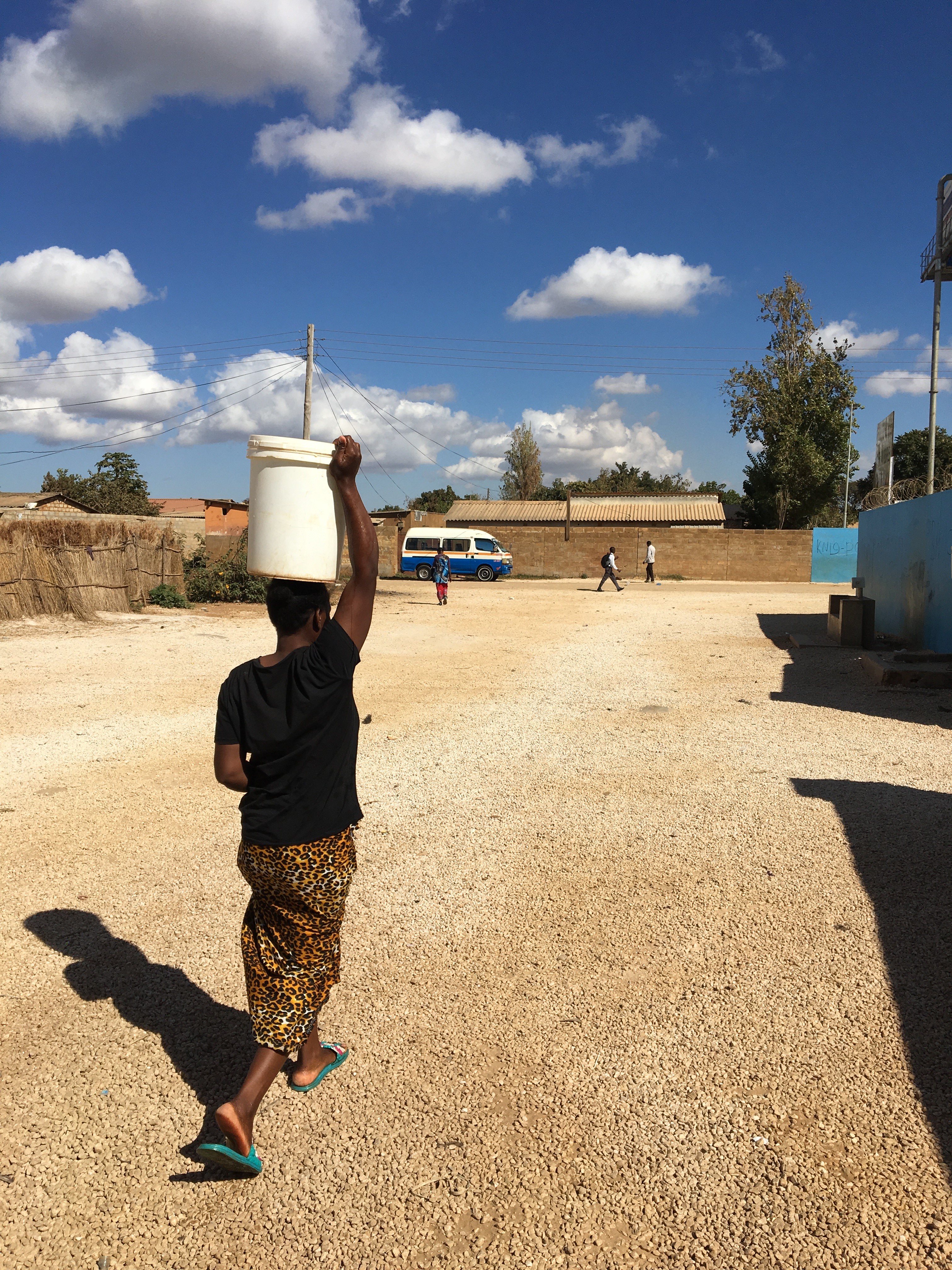
A Jack resident transporting water from the communal kiosk
MECB built 30 new communal kiosks and 1,182 direct yard and household connections in Jack Compound, a peri-urban community in Lusaka, likely reducing residents’ wait times for water. However, despite reports that water access had improved, some residents observed that access was unevenly distributed, with the community’s peripheries continuing to suffer from low water pressure, lack of availability, and long queues. On price, residents found the cost of water from MECB kiosks to be affordable, as it was cheaper than other sources such as private boreholes. However, some residents did not have a clear understanding of the token-based payment system and thus had difficulty knowing how much they were paying.
MECB and LWSC’s agreement did not clearly delineate roles and responsibilities beyond the project’s planning and construction phases, as it did not fully account for MECB and LWSC’s ongoing role once water distribution began. Under the original memorandum of understanding (MoU), the initial assignments of project asset ownership and maintenance did not optimally leverage the principal partners’ respective strengths. In addition, the the agreement’s nonbinding nature caused initial uncertainty between MECB and LWSC and led to implementation delays. An amendment to the agreement helped streamline operations but excluded community stakeholders. At endline, community leaders expressed concern over the lack of community engagement from MECB and LWSC, and some residents were confused about who to ask for help with water connection problems.
Implementation Process and Challenges
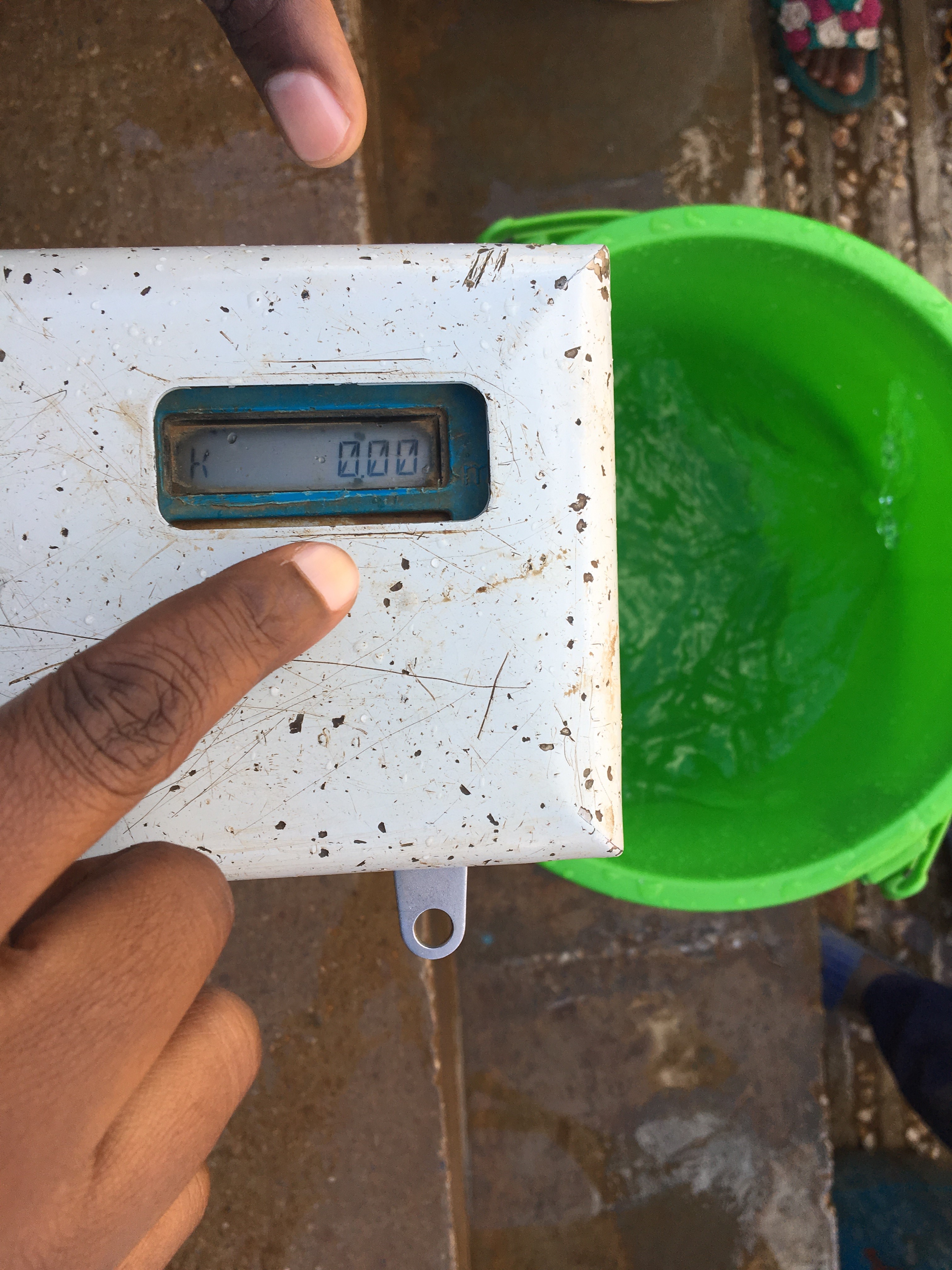
The newly installed kiosk token system in use
Although residents were receptive to the token-based payment system for water kiosks, some residents struggled to use it because of the tokens’ cost, the requirement to present a National Registration Card, and the inability to recover funds on lost tokens. During the construction phase, the project experienced a six-month delay due to poor water quality at the site of the planned borehole in Jack Compound. MECB had to move the primary production borehole to an alternate site several kilometers away.
Sustainability
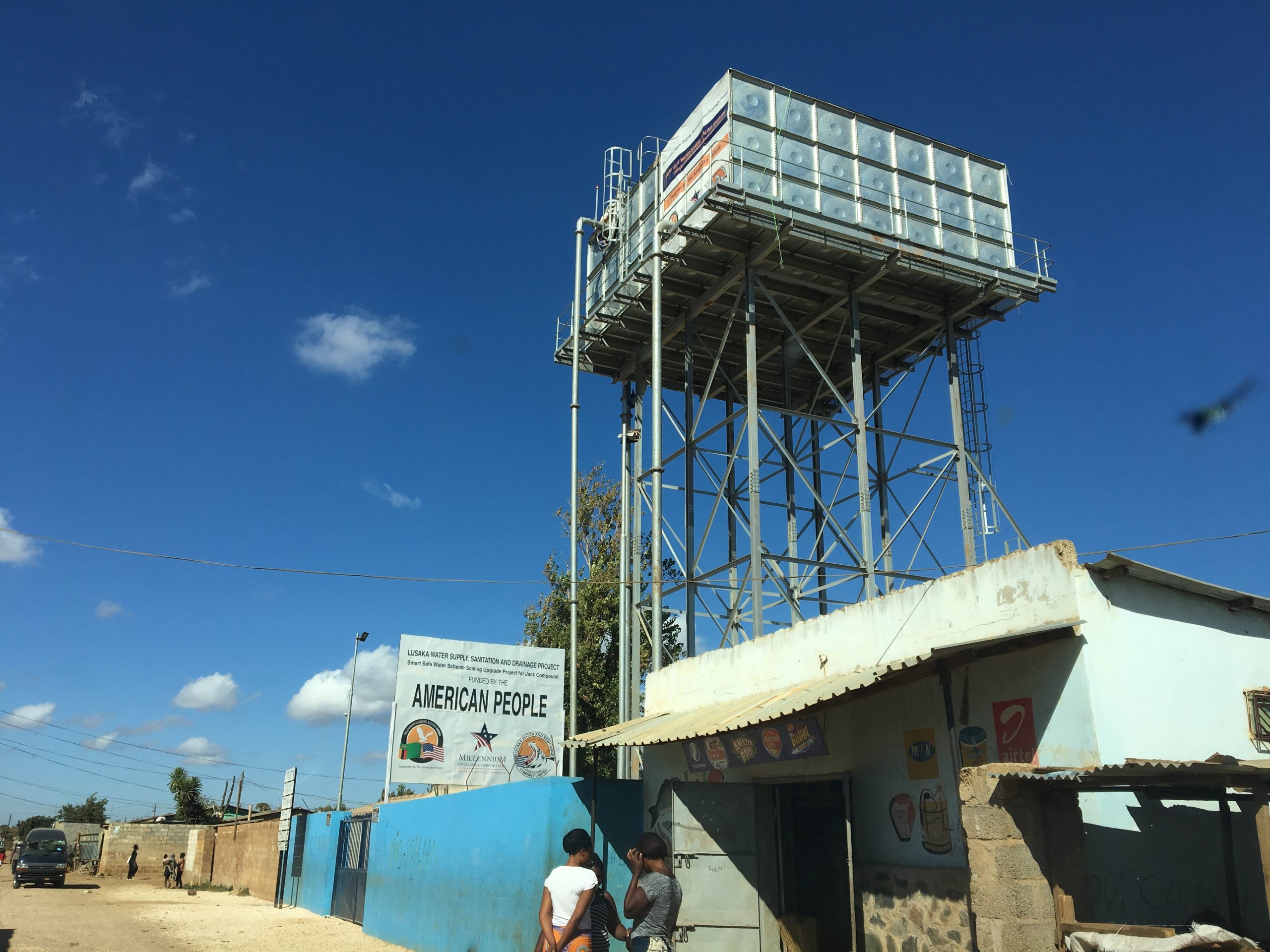
Newly constructed water tank
MECB gave LWSC primary maintenance responsibility because of their institutional and technical capacity. MECB and LWSC expressed confidence that the Smart Safe Water Supply Scheme Scaling-Up project will lead to sustainable water provision if the proper management and operational systems are in place and all partners perform their defined roles. MECB also expressed confidence in the viability of its revenue-sharing agreement with LWSC although it had not made detailed financial projections at endline in 2019.
MCC Learning
Carefully assess risks of reliance on weak or unresponsive sector institutions that may be vital to implementation and sustainability.
Consider the costs and benefits of a grant facility as opposed to other implementation modalities in order to achieve project objectives.
Evaluation Methods
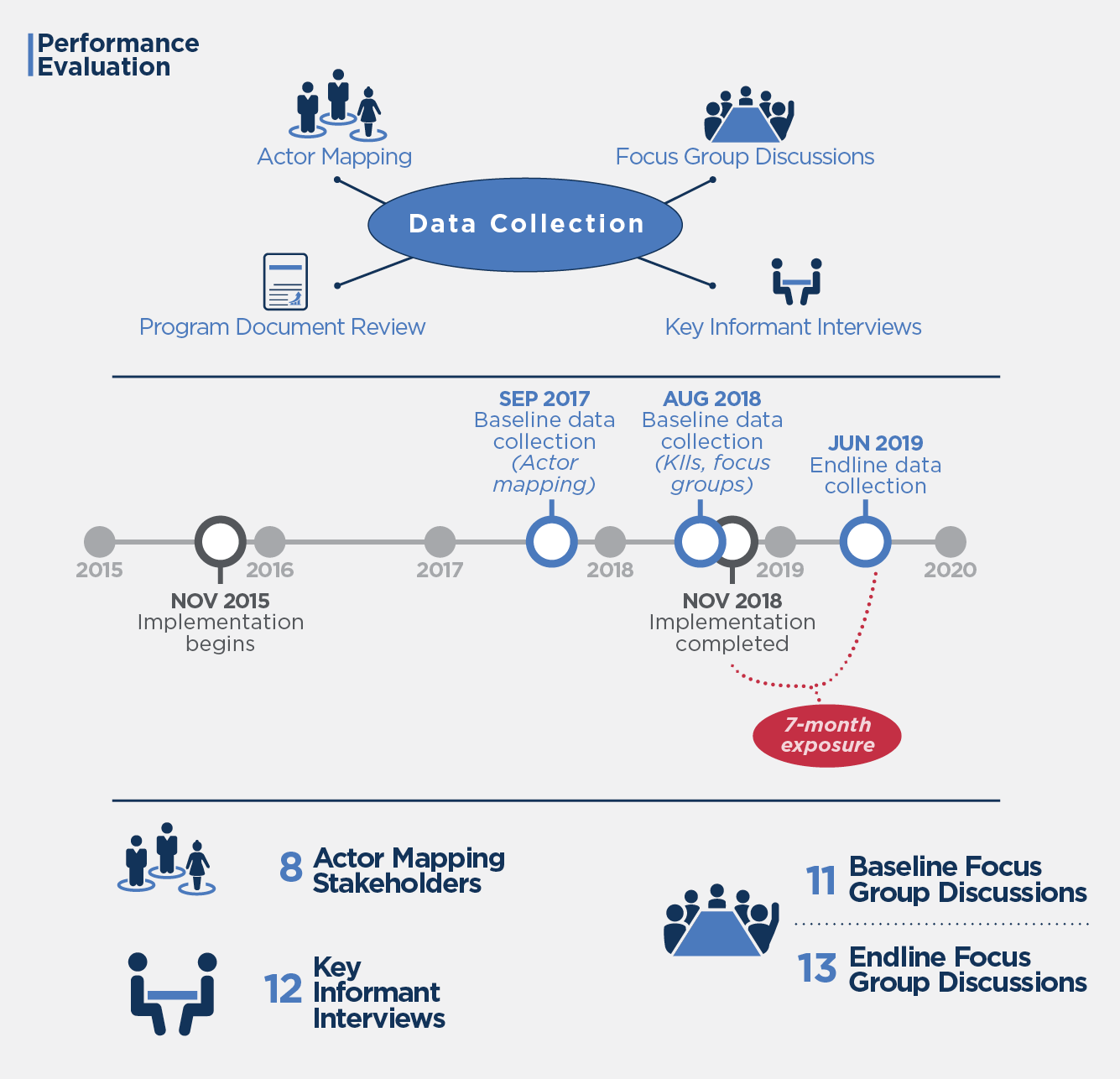
The performance evaluation used mainly qualitative methods, including actor mapping, key informant interviews, and focus group discussions. Primary data were bolstered by and triangulated with official program documents obtained from MECB and the Millennium Challenge Account–Zambia.
Implementation of the MECB grant commenced in November 2015, and installation of new water kiosks and direct connections was completed by October 2018.
In September 2017, the evaluator collected baseline data through actor mapping with eight key stakeholders occupying various roles in the water provision system. The evaluator conducted 12 semi-structured key informant interviews at baseline (in August 2018) and 12 at endline (in June 2019) with stakeholders central to the implementation of MECB’s water project, individuals at key positions in water provision agencies, and local community leaders. The evaluator also conducted 11 focus group discussions at baseline and 13 at endline with Jack Compound residents.
Project implementation was completed on November 15, 2018. Endline data collection took place in June 2019, representing an exposure period of approximately seven months.
2020-002-2405


